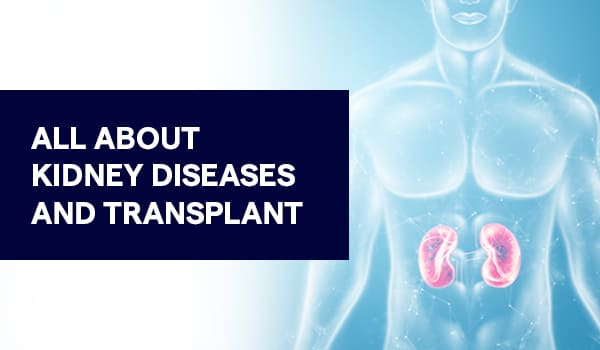
Kidney diseases pose a substantial health burden, with CKD being associated with a high mortality rate and responsible for about 10% of all deaths. The National Health Profile 2019 highlights that kidney diseases rank among India's top ten causes of mortality, contributing to approximately 4.5% of all deaths.
One of the most common kidney disease symptoms is fatigue and weakness. Individuals may feel tired and weak even after getting enough rest. Swelling in the legs and ankles is another common symptom due to the body's buildup of fluids. Decreased urine output also indicates that the kidneys are not functioning correctly. As the disease progresses, the individual experiences difficulty concentrating and may have high blood pressure. In advanced stages additional kidney disease symptoms may occur, such as changes in urination patterns, including urinating more or less than usual. Nausea, vomiting, and itching may also manifest as the disease advances. Breathing problems are another symptom that may occur in the later stages of the disease.
Early detection and treatment of kidney disease can help prevent further kidney damage and improve the individual's overall health and well-being.
For individuals with end-stage renal disease, a kidney transplant is often considered the most effective treatment option. Kidney transplant surgeries have shown promising success rates, offering new hope to patients in need of a kidney replacement. The transplant procedure involves the surgical implantation of a healthy kidney from a donor into the recipient's body to replace the non-functioning kidney. Donor matching, post-operative care, and overall health status are crucial in determining kidney transplant patients' success and survival rates.
The process of kidney transplant is a complex and thorough one that begins with a careful evaluation of potential candidates to determine their suitability for the surgery. Once deemed eligible, patients are placed on a waiting list to find a compatible donor match that will ensure the success of the transplant and reduce the risk of rejection.
Once a suitable donor has been identified, the surgical procedure begins with the removal of the non-functioning kidney. This process requires the utmost care to minimize complications and ensure a successful outcome. The healthy kidney is then transplanted into the patient, with the surgical team taking all necessary steps to ensure that the new kidney is properly connected to the patient's blood vessels and urinary system.
After the surgery, patients are closely monitored to ensure the new kidney functions properly. This may include regular check-ups, blood tests, and other diagnostic procedures to ensure the patient is recovering well.
Following a kidney transplant surgery, patients should receive consistent and careful monitoring along with ongoing care to ensure the proper functioning of the new kidney and to prevent any potential complications.
Post-operative care involves regular check-ups, management of medication, and lifestyle modifications to promote healing and guarantee the long-term success of the transplant from the Nephrology Hospital in Delhi. It is essential to follow post-operative care instructions to maintain the health and longevity of the transplanted kidney and enhance the patient's quality of life. These measures support the patient in enjoying a better life by reducing the likelihood of further complications and promoting a quicker recovery.
The success of a kidney transplant depends on several factors, including the patient's overall health status and readiness for surgery from the best Renal Transplantation hospital. Meeting specific eligibility criteria ensures a successful procedure and the patient's long-term well-being. However, the role of post-operative care is equally important. Patients who have undergone a kidney transplant require close monitoring, medication management, and lifestyle adjustments to prevent complications and support healing. Following the post-operative care instructions is crucial as it can help patients maintain the proper functioning of the transplanted kidney and ensure their overall health and well-being. The recovery process can be challenging, and patients may need significant lifestyle changes.
Book an appointment with Sir Ganga Ram Hospital, for further information.